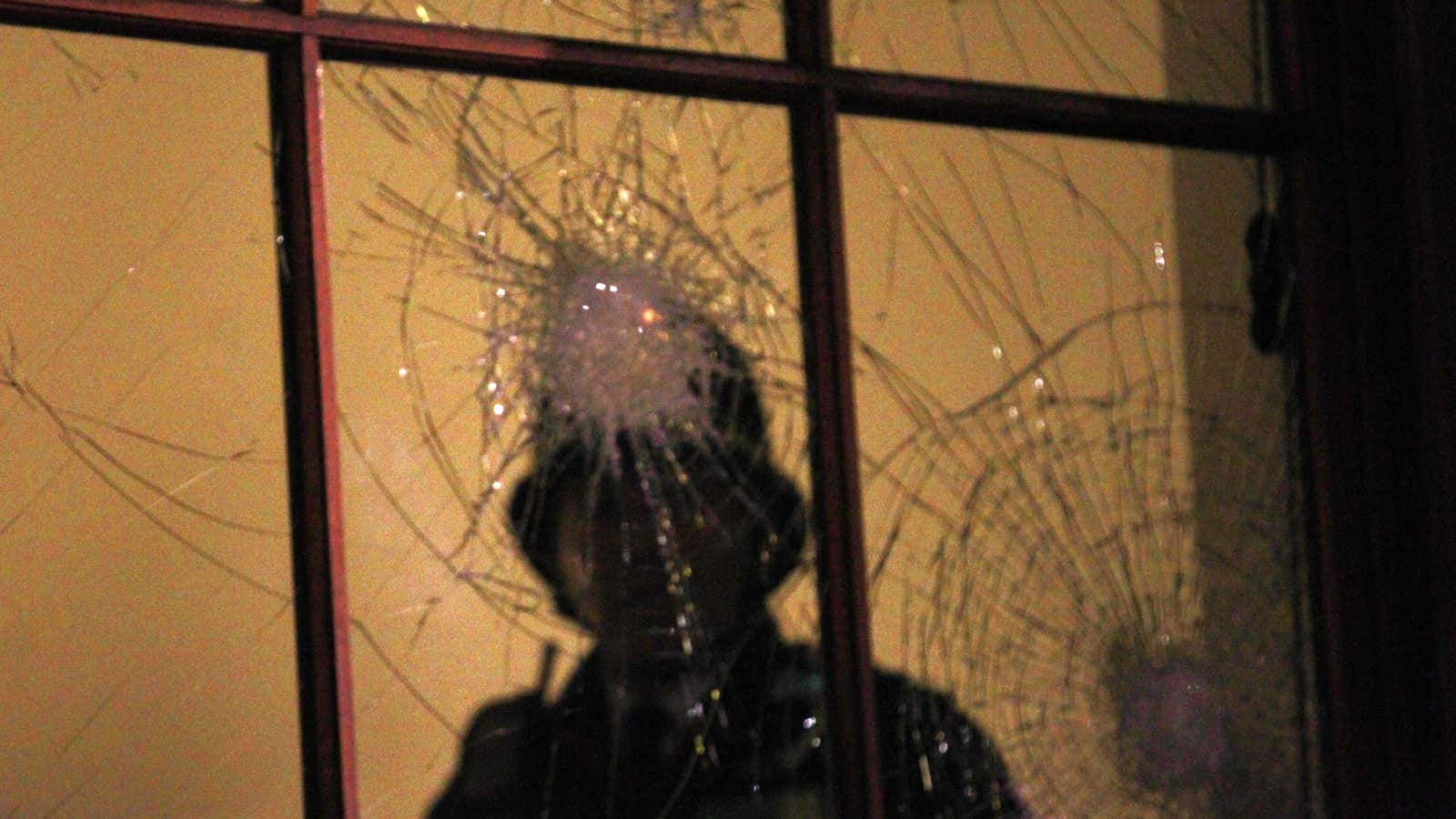The British government long-awaited report on deaths in police custody is out, and it makes for uncomfortable reading (pdf).
The report notes that every prosecution over a death in custody in the past 15 years has ended in acquittal. “In fact, there has never been a successful prosecution for manslaughter in this context,” it says. “It goes to the heart of why families so often feel let down by the system.”
Prime minister Theresa May ordered an independent review in deaths in police custody in 2015, while she was home secretary. She did so after meeting with bereaved families who felt justice was not being served, following a number of high-profile deaths involving the police.
A spokesperson for the Independent Police Complaints Commission (IPCC), the watchdog that oversees these cases, tells Quartz that while they’re not aware of any successful conviction of a police officer over a death in custody for manslaughter, “there are a small number of cases where officers have been convicted of ‘misconduct in public office.'”
Between 1998 and 2009, only one police officer and one staff member were found guilty of any offense related to a death in police custody. The police officer was found guilty of misconduct in a public office—and sentenced to six months in prison, suspended for one year—was convicted “for failing to do the required checks on detainees,” the spokesperson says. The police staff member was also found guilty of misconduct in a public office and was convicted for failing “to carry out checks and maintain custody records.”
There have been over 1,500 deaths in police custody in England and Wales since 1990, according to the charity Inquest. Around 10% of people who died in or following police custody were from black, Asian, or minority ethnic (BAME) backgrounds. This roughly reflects the UK population: people with BAME backgrounds make up around 14% of residents.
A spokesperson for Inquest tells Quartz that, at first glance, statistics on deaths in police custody don’t suggest race is a factor. That’s because the definition of what counts as a death in police custody is quite broad. It includes all deaths that take place while an individual is in contact with police—whether or not they have been arrested—or that happen shortly after contact. There’s no specific time frame for contact with police, nor does it mean any force was used. It’s also worth noting that being included in these figures doesn’t mean the police were responsible for the death.
When looking at deaths where force or restraints are used, race becomes impossible to ignore. According to Inquest, BAME people make up a disproportional number of deaths in police custody where force or restraint is used:
- BAME deaths in custody where restraint is used are more than two times greater than white deaths in custody
- BAME deaths in custody where force is used are more than two times greater than white deaths in custody
- BAME deaths in custody where mental health-related issues feature are nearly two times greater than white deaths in custody
In 2008, black British musician Sean Rigg died at Brixton police station in south London. An inquest into Rigg’s death found police had used “unsuitable” force. One officer was prosecuted, but found not guilty for giving false evidence. In 2016, the Crown Prosecution Service said there was not enough evidence to charge any other officers. In 2011, Kingsley Burrell, another black British man, died while detained by police at a mental health unit in Birmingham. An inquest into Burrell’s death found that prolonged restraint had been a factor in his death. Earlier this month, three police officers were cleared of lying under oath at Burrell’s inquest.
There have also been a number of controversial deaths in custody since the report was published. In this year alone, four young black men have died in custody, but none of the officers involved had been suspended. The family of one of the victims, 20-year-old Rashan Charles, accused the police of “disdain.”
The independent review, released on Monday, acknowledges “evidence of disproportionate deaths of BAME people in restraint related deaths.” The report called on the police and the government to address concerns that racial stereotyping may be a factor in these deaths. The report contains 110 recommendations, such as that officers should not “confer or speak to each other” before they make their statements, video cameras should be fitted in every police van and on officers’ bodies, and that the police watchdog should challenge discrimination whenever there is evidence of it.
Relatives of Rigg and others who died in custody called on the government to quickly implement its findings.
